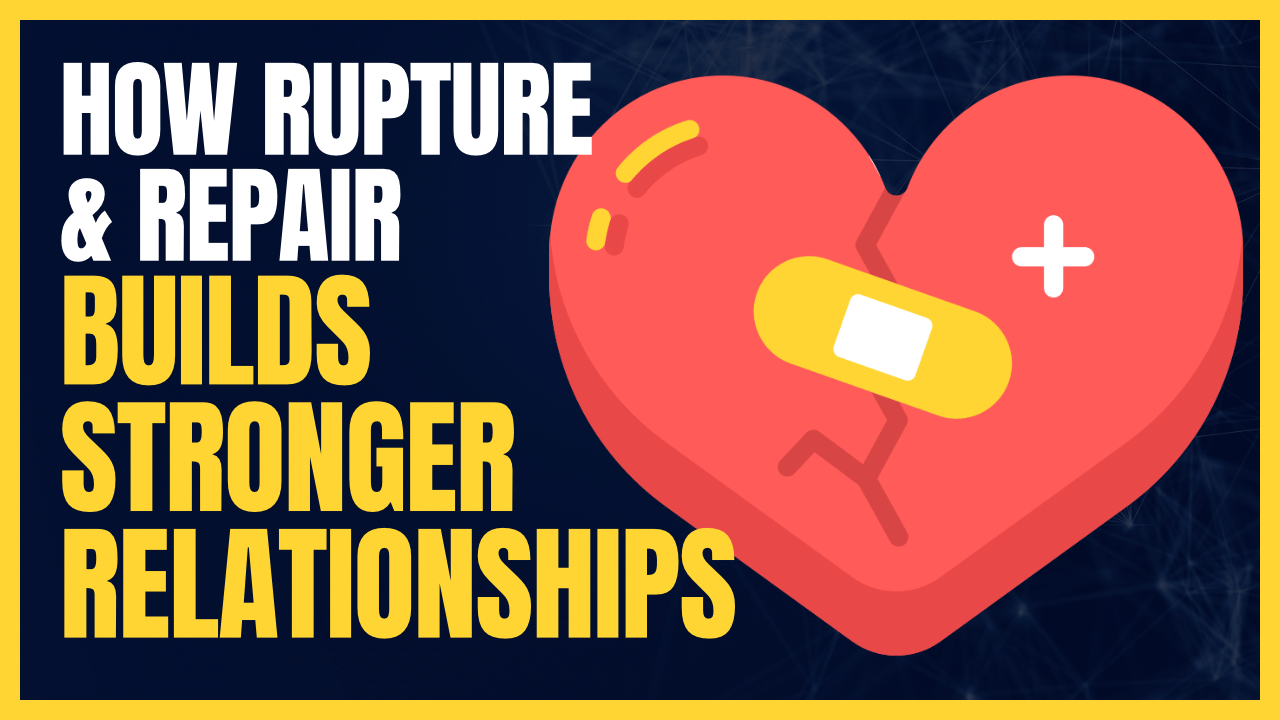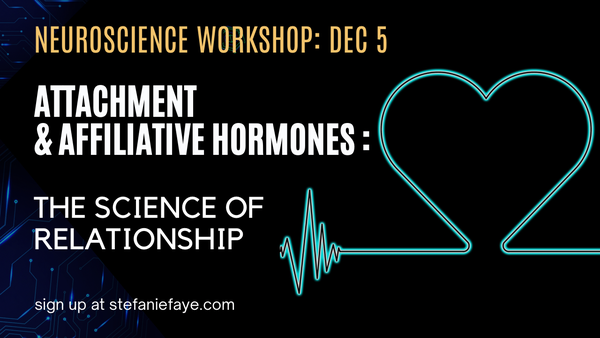Resilient relationships - whether in friendships, intimate partnerships or families - are not about perfection or only positivity.
 |
The ruptures within ourselves and our relationships are precisely what our nervous system needs to build a repertoire of strategies that make it stronger.
We don’t need to teach our children, partners, friends and others that we are perfect.
To truly build resilience, a system must navigate a large repertoire of strategies to tolerate a variety of levels of challenge and opportunity. The wider the range of these strategies, the more the system can adapt. Therefore, being exposed to a large variety of stimuli and states of arousal is a strategy for building sophisticated self- regulatory systems.
One mechanism for doing this is the distress-relief or rupture-repair sequence [SCHORE1994].
The goal of a complex system like a person or relationship is not to only maintain a constant state of positive arousal or calm. It must also experience a wide range of internal and external fluctuations. These help develop strategies and sequences of behaviors for navigating many types of scenarios, and thus improve chances of long- term survival and thriving.
For example, in couples research, it is not the absence of conflict that predicts whether a couple will report marital satisfaction and/or remain married, but rather the types of strategies used, particularly during and after conflict. It is the recovery that matters [GOTTMAN2015].
In fact, when a partner, parent or leader is a true model of resilience for others, it is because they demonstrate that they can fall and then come back.
If we can still allow ourselves to have difficult emotions and acknowledge when we feel challenged, it helps us know that we have the tools to navigate many terrains, and serve as a model for others because we can show what it looks like to course-correct.
We let them see that even with our imperfections, we persevere and continue to grow and evolve.
If a model is always 'perfect', they are not able to demonstrate how to get back up after a fall, since they have never 'fallen'. A resilient system is designed to withstand challenge and adapt. Smooth sailing with no obstacles never actually tests a system, a person or a relationship. Getting through trials and errors creates a track record of trust and reliability within that system.
Rupture-and-repair creates a template that stress, discomfort and uncertainty, starts and stops, ups and downs can be endured and conquered - whether for is an individual or for a relationship, team or community.
Ruptures and challenges followed by REPAIR are important for building resilience.
Rather that avoid them, we can understand that they can help us build stronger systems - but the key to all of this is in the REPAIR that follows.
Rupture without repair overloads a system.
A system without any ruptures or challenges can stagnate and atrophy.
We need both.
Learn more about how to add repair after a rupture in this video
|
|
|
(I also go further into rupture-and-repair in my Human Systems Resilience mini-book… if you’re subscriber, make sure to check your email for the link.)
Thank you and have a wonderful week!
References:
Gottman, J.M., Driver, J. & Tabares, A. (2015) Repair During Marital Conflict in Newlyweds: How Couples Move from Attack–Defend to Collaboration, Journal of Family Psychotherapy, 26: 2, 85-108.
Schore, A. (1994) Affect Regulation and the Origin of the Self: the neurobiology of emotional development, Hillsdale, NJ: Erlbaum.
|
|
Next workshop is on Attachment and Affiliative Hormones!
|
|
|
Stefanie Faye
Human Systems Intelligence & Resilience
Coach, Consultant and Workshop Facilitator
stefaniefaye.com
|
Contact me if you’d like to learn more about my high performance coaching and organizational consulting services! Connect by replying directly to this email or email me at hello@stefaniefaye.com
*please note that the suggestions and exercises offered in these videos are not offered as a substitute for professional mental health care or medical care and are not intended to diagnose, treat or cure any mental health or medical conditions.




